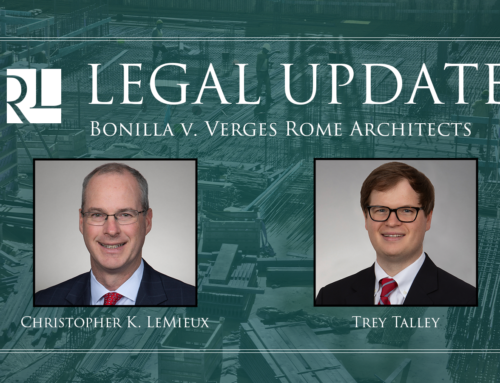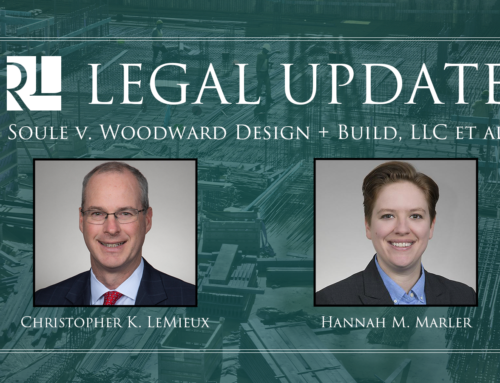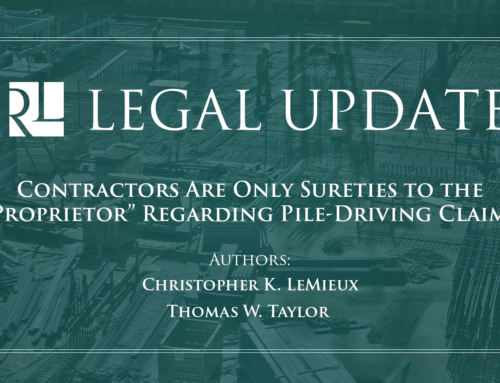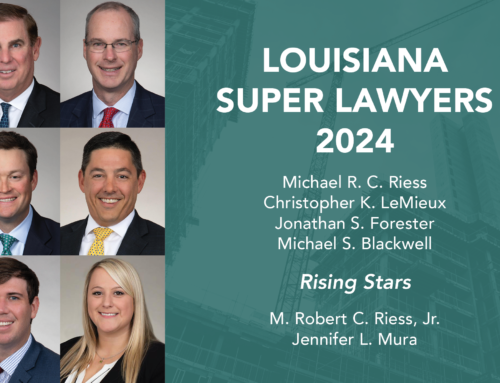Are notice requirements for contractor delays claims always enforceable? Not always. The Louisiana Fourth Circuit recently issued an important decision regarding the enforceability of written notice requirements in a case concerning delay claims, concluding that several factors precluded the project owner from denying claims for lack of timely notice.
In TKTMJ, Inc. v. The Sewerage and Water Board of New Orleans, the public owner, the Sewerage & Water Board (S&WB), and the contractor, TKTMJ, Inc., each alleged breach of the construction contract due to numerous delays on the project. In reviewing the circumstances of the lack of written notice on several different projects, the Fourth Circuit’s decision clarifies when a contractor must provide written notice of a delay claim. When the delay is caused by someone other than the owner, written notice is required per the contract. If the delay is caused by the owner, the written notice requirement is not triggered.
The TKTMJ court explained that in the event a contractor submits a change order, encounters a delay, or needs an extension of time as a result of an action or direction by the contractor or “someone other than the owner,” the contractual notice requirement is triggered and can be enforced. Under circumstances where the owner caused the delay, however, a contractor is not required to provide written notice to the owner. The rationale is that the owner cannot enforce the notice requirement if it caused the delay or circumstances giving rise to the delay.
Additionally, if the owner suspends work, or changes or adds work, the written notice requirement is also not triggered. The TKTMJ court ruled that “additional work” includes design changes by the owner. Accordingly, a contractor is not required to provide written notice to the owner for delays that result from design changes or additional work that were directed or requested by the owner.
Notably, the Fourth Circuit did not rule on whether delays caused by design professionals, such as the architect or engineer of record, would result in the same outcome. It remains to be seen how Louisiana courts would rule in that situation. In the meantime, the TKTMJ ruling emphasizes that written notice provisions are not always enforceable, particularly when the owner causes or is responsible for the delay giving rise to the claim.



